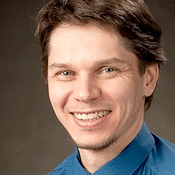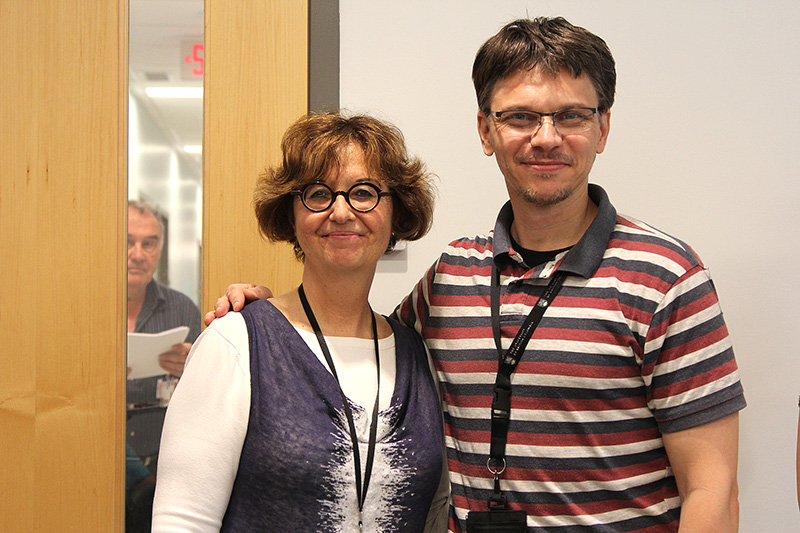Personal Experience: AFC in Cytopathology
Area of Focused Competency (AFC) Royal College Diploma - Canadian Approach to Clinical Fellowships
Recent decades have highlighted the need for structured post-residency sub-specialty education. More and more graduating residents in numerous specialties, including pathology, are seeking additional fellowship training, but until recently the opportunities for such training in Canada have been very limited. This was recognized by the Royal College as a major deficiency, but has thankfully begun to change with the development of Area of Focused Competency (AFC) Diploma programs by the Royal College in addition to traditional and well-recognized clinical specialties (with regards to to laboratory medicine, these would include include anatomical and general pathology, hematopathology, forensic pathology, medical microbiology and clinical chemistry). Forensic pathology has obtained a status of a subspecialty with Royal College examination, which (similarly to AFC) requires a successful completion of a full pathology residency and certification prior to commencement of the approved post-residency training programs.
The completion of an AFC diploma requires a year of full-time study (typically at a level of PGY6). It requires the completion of a comprehensive portfolio, which includes material evidence that the candidate has achieved each of the 15 milestones required by the Royal College. These include clinical service work demonstrating both volume and breadth of practice (i.e. an aggregated log book of all diagnostic cases, cases with advanced work-up, critical values and consult reports), completion of in-program oral and written exams, teaching and practice evaluations, multi-source feedback (from staff, peers, technical and clerical personnel), completion of quality improvement and academic research projects, and participation in administration and policy-making activities related to their field of study.
The completed portfolio is then submitted to Royal College by a candidate through MAINPORT e-diploma interface and passes through several levels of approval by the rotation supervisors, the program director, thepost-graduate medical dean, before a final revision by the Royal College Credential unit. The Royal College then appoints two independent anonymous assessors, who review the portfolio and decide whether the required milestones have been met by the candidate. Only after the full completion of each of the steps will the Royal College award AFC Diploma status.
There are currently 11 clinical specialties in Canada which have obtained Royal College AFC status, with 13 additional areas seeking similar approval.
There are currently 11 clinical specialties in Canada which have obtained Royal College AFC status, with 13 additional areas seeking similar approval. In to the case of pathology, there are only two approved AFC programs at the moment: Cytopathology and Transfusion Medicine. The UBC has been pioneering in this area, with our transfusion program receiving Royal College AFC accreditation in 2012.
There are five accredited AFC-Cytopathology programs in the country. I myself recently completed the AFC Cytopathology program at McGill after 10 years in anatomical pathology practice.
McGill Pathology department is now enjoying new site intergrated into McGill University Center (known as Glenn site) with modern ergonomic space design, separated clinical, teaching and technical space.
McGill’s Department of Pathology has now been integrated into the McGill University Center (also known as the Glenn site), with its modern ergonomic space design, and separated clinical, teaching and technical spaces. The department is fully supported by digital pathology, used primarily for teaching and multidisciplinary conferences. The Glenn site hosts, under one roof, general and pediatric hospitals and specialized centers in Montreal-i.e. Montreal Thoracic Institute and Ceder Cancer Centre, both of which provide broad spectrum of general pathology and cytopathology practices.
My program was structured as PGY6 residency year, and required a full spectrum of participation in both daily diagnostic work and academic activities, tailored specifically for cytology. The program organized 20 academic half-day cytopathology sessions, plus teleconferences with the American Society of Cytopathology and a popular annual McGill cytopathology review course which fellows attend as part of their training. The annual clinical load for a fellow approaches 2000 unique cytopathology samples and consults, with more than 400 of these requiring advanced work-up (special stains, immunohistochemistry, flow cytometry or molecular studies).
In addition to the traditional slide reviews and bi-weekly case sign-out with staff cytopathologists, the AFC fellow will be required to complete a technical rotation, which includes hands-on experience, in the cytology preparation lab, followed by an oral exam on the technical aspects of cytopathology (this is in addition to two comprehensive in-house oral and written exams in diagnostic cytopathology given by two faculty members).
The two other substantial components of the AFC training includes a fine needle aspiration clinic rotation under the supervision of surgeons and rapid-on site evaluation (ROSE) clinics (respirology, gastroenterology and general surgery) throughout the year, both followed by a formal assessment of achieved clinical competencies.
One of the major challenges of this style of the clinical training is a routine meticulous collection of clinical evidence.
One of the major challenges of this style of the clinical training is a routine meticulous collection of clinical evidence. This is achieved by information technology set-up from the beginning and by keeping a cytopathology log-book, which is forms a core part of the AFC portfolio ready for assessment by Royal College.



